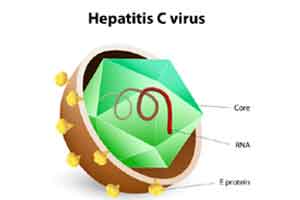- Home
- Editorial
- News
- Practice Guidelines
- Anesthesiology Guidelines
- Cancer Guidelines
- Cardiac Sciences Guidelines
- Critical Care Guidelines
- Dentistry Guidelines
- Dermatology Guidelines
- Diabetes and Endo Guidelines
- Diagnostics Guidelines
- ENT Guidelines
- Featured Practice Guidelines
- Gastroenterology Guidelines
- Geriatrics Guidelines
- Medicine Guidelines
- Nephrology Guidelines
- Neurosciences Guidelines
- Obs and Gynae Guidelines
- Ophthalmology Guidelines
- Orthopaedics Guidelines
- Paediatrics Guidelines
- Psychiatry Guidelines
- Pulmonology Guidelines
- Radiology Guidelines
- Surgery Guidelines
- Urology Guidelines
Newer medications can cure HCV infections, study suggests

A new analysis reveals a dramatic transformation in the care of patients infected with hepatitis C virus (HCV) as more effective and tolerable medications have become available.
In an analysis of all HCV antiviral treatment regimens (N=107,079) initiated from 1999 through 2015 in the US Veterans Affairs national healthcare system, cure rates increased steadily from 19.2% in 1999 to 36.0% in 2010 before a remarkable increase to 90.5% in 2015. The number of patients achieving sustained virologic response was 1313 in 2010, the last year of the interferon era and increased 5.6-fold to 7377 in 2014 and 21-fold to 28,084 in 2015.
"The introduction of effective direct antiviral agents together with the allocation of appropriate funds and resources allowed the VA healthcare system to treat and cure hepatitis C in unprecedented numbers. In fact, out of approximately 57,500 patients cured of hepatitis C in the VA since 1999, approximately half were cured in a single year in 2015," said. Dr. George Ioannou, senior author of the Alimentary Pharmacology and Therapeutics analysis. "The question is whether we are delivering these medications to the patients who need them and what obstacles there are to treating and curing the majority of hepatitis C infected patients."
You can read the full Article by clicking on the link :
A. M. Moon, P. K. Green, K. Berry, G. N. Ioannou. Transformation of hepatitis C antiviral treatment in a national healthcare system following the introduction of direct antiviral agents. Alimentary Pharmacology & Therapeutics, 2017; DOI: 10.1111/apt.14021

Disclaimer: This site is primarily intended for healthcare professionals. Any content/information on this website does not replace the advice of medical and/or health professionals and should not be construed as medical/diagnostic advice/endorsement or prescription. Use of this site is subject to our terms of use, privacy policy, advertisement policy. © 2020 Minerva Medical Treatment Pvt Ltd